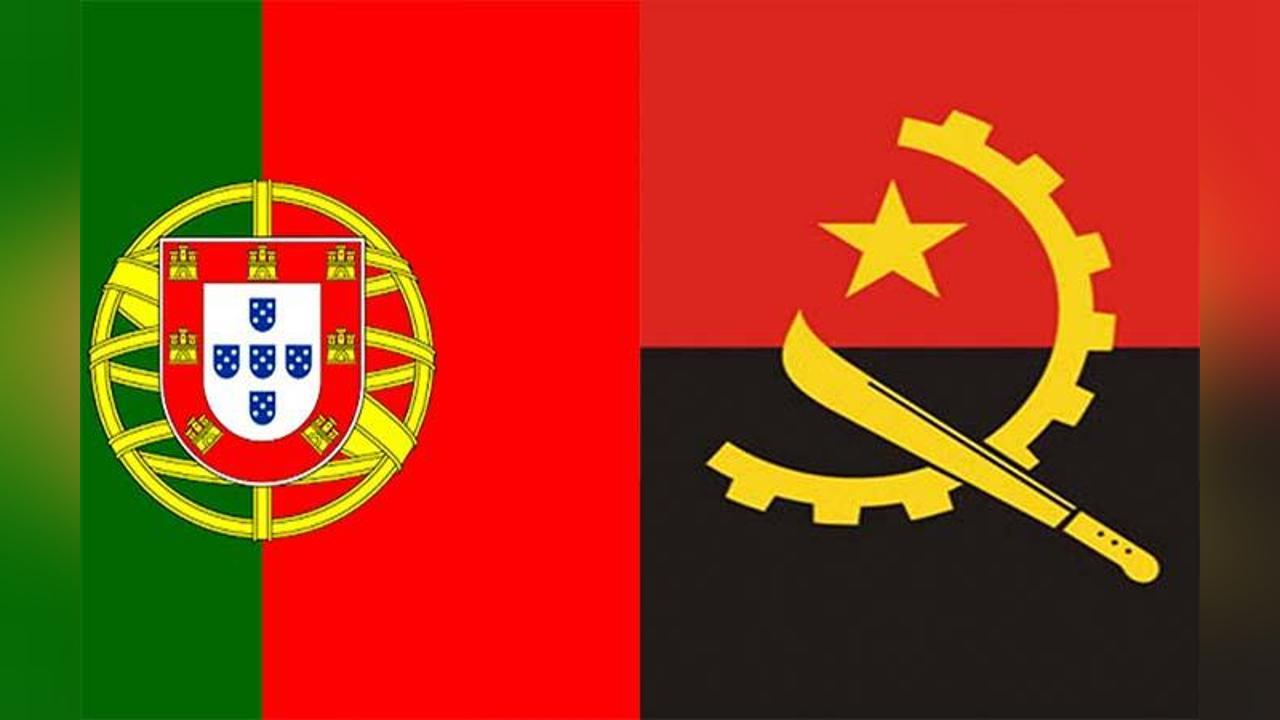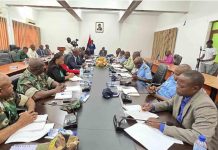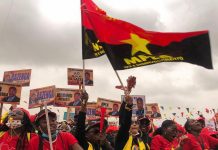By António Tavares
Africa-Press – Angola. April 25th is celebrated annually in Portugal, as the anniversary of the uprising that simultaneously put an end to the fascist dictatorship of António Salazar and the colonial wars, in what became known as the Carnation Revolution.
The revolt took place precisely on April 25, 1974, almost a year and a half before Angola’s Independence, proclaimed on November 11, 1975.
In other words, it is an important milestone in Portuguese democracy and the self-determination of the Angolan people.
For the Portuguese ambassador in Angola, the 50th anniversary of the 25th of April and the 50th anniversary of Angolan Independence are two interconnected milestones, which “make perfect sense” for the two countries to mark together, in a mature and uncomplex way.
Speaking about the anniversary, Francisco Alegre Duarte dedicated, therefore, “a special word to those who fought, on one side and the other”.
“It is important that we honor and preserve the memory of all those who fell: both those who fought for Portugal through the Empire, and those who fought for liberation and independence”, he said.
He asserted that everyone was patriotic and that, five decades after a war that culminated in the two twin liberations, it is everyone’s responsibility to honor their sacrifice with dignity.
To enhance this epic, he said that, since arriving in Angola, he has been committed to the recovery of Portuguese military plots in Luanda, and thanked the good cooperation of the Angolan Government in this regard.
Francisco Duarte, who, like many other Portuguese, is also linked to Angola by blood ties, quoted the words of the previous prime minister, António Costa, in June 2023, when he visited Angola.
“We arrived here through a common history (…) which was often painful, but which led to a common struggle and a common success – freedom and independence.
“We have to take on history in all its dimensions, in what was tragic and what was extraordinary (…) we honor all the History we inherited, we understand this History well and we know that the greatest duty we have towards this History is to heal the wounds and build on it the friendship that will ensure many good years of fraternity between our peoples”, cited the Portuguese diplomat.
António Costa’s words, in Luanda, were delivered during a visit to the rehabilitation work of the Fortaleza de São Francisco do Penedo, which will house the future Museum of the Struggle for the National Liberation of Angola.
Francisco Duarte states that, thanks to the 25th of April, he grew up in a free country, and pays homage to the fact that, 61 years after his father was imprisoned in Angola, and 50 years after the Revolution, he is ambassador in Angola.
Consequences of April 25th
The 25th of April 1974 was a successful Revolution, both internally and externally.
On the external front, it inaugurated the third wave of global democratization, named by Samuel Huntington, as more than 50 countries transitioned from authoritarian regimes (right or left) to constitutional democracies, as was the case in neighboring Spain.
Until 1975, all Portuguese colonies in Africa declared themselves independent, while in Brazil, the Portuguese democratic revolution also galvanized hope for the end of the military dictatorship.
The peace mediation efforts in Angola and the fulfillment of the self-determination of the people of Timor-Leste were also of paramount importance for foreign policy.
This liberation was a victory of dignity in which few believed, but the truth is that the Timorese and Portuguese diplomacy never gave up, and won, in a unique moment for International Law and the UN.
The overthrow of the dictatorship in Portugal, stated the ambassador, owed much to the struggle for freedom of colonized peoples, a struggle not only political, but also cultural, as “several traces of unity remained”, with emphasis on the Portuguese language.
Francisco Duarte argued that there was a process of transformation and appropriation of the Portuguese language, “which went from being a language of colonial occupation to a language of freedom, independence and national unity”.
In his opinion, this happened before Angola’s independence, in the poems and texts in which Agostinho Neto, Viriato da Cruz, António Jacinto and Mário de Andrade affirmed their Angolanness and proclaimed: “Let’s rediscover Angola, let’s be ourselves”.
“I also think about the poetry of Alda Lara, the lyrics of Rui Mingas’ songs, the National Anthem of Angola and the prose of Pepetela, who would later be honored with the Camões Prize, and also in semba, from Carlos Burity to Paulo Flores and other artists from the new generations, some of whom have had great success in Portugal”, he concluded.
ANGOP
For More News And Analysis About Angola Follow Africa-Press






